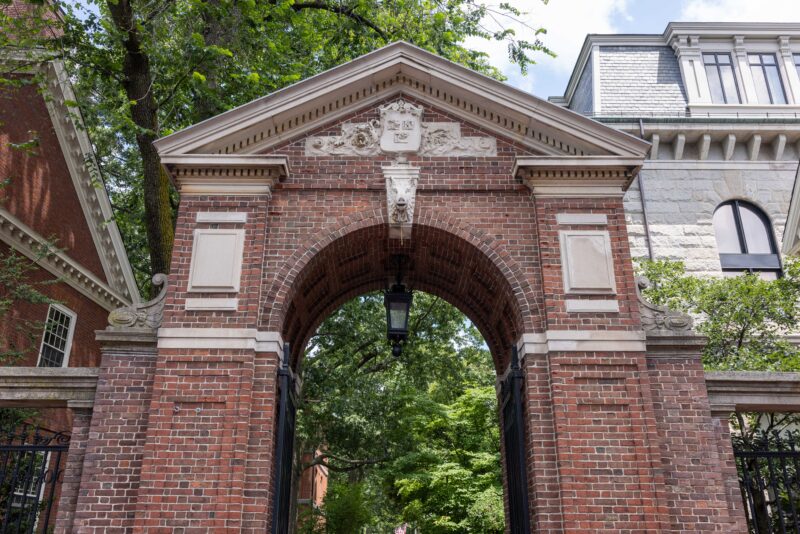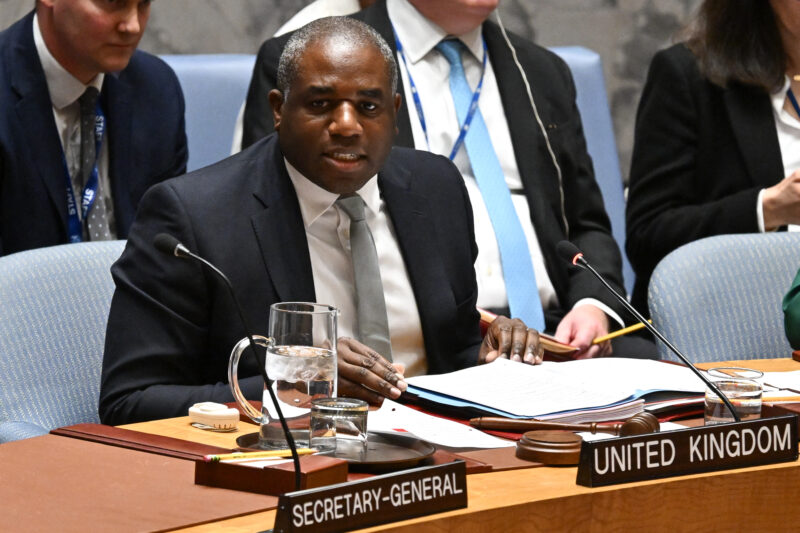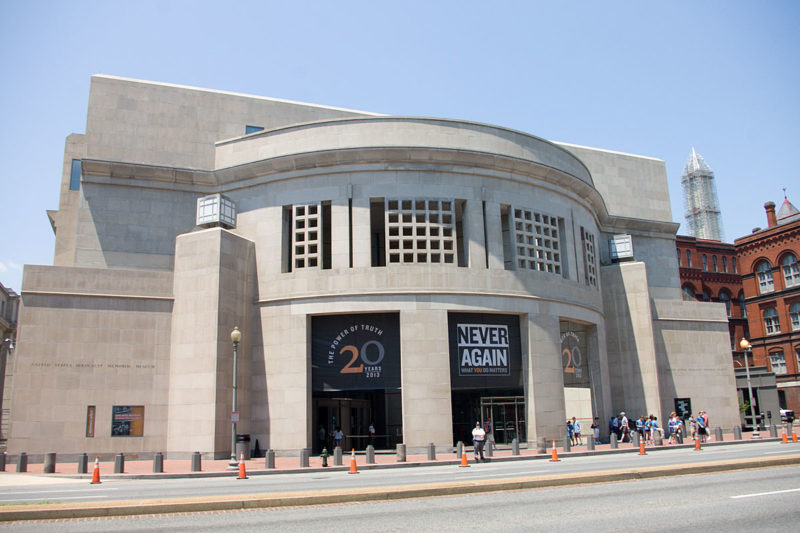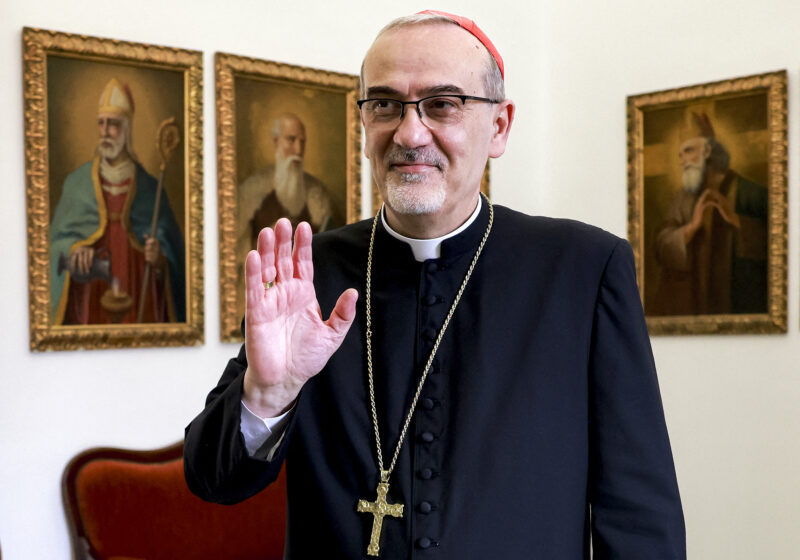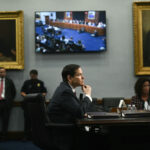Suspended groups at Columbia University continue to hold anti-Israel campus events
The unauthorized events include protesters chanting 'intifada, intifada, long live the intifada' and 'from the river to the sea, Palestine will be free.' Administrators have declined to stop the events
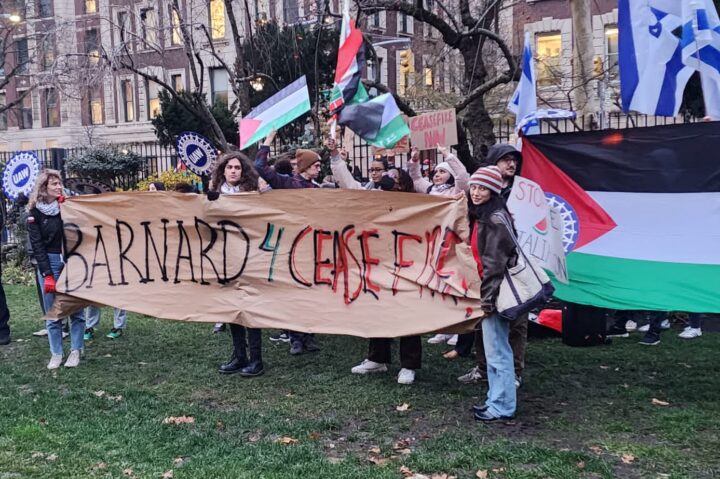
Alon Levin
Columbia SJP protest, Barnard campus, Dec. 11, 2023
Just weeks after Columbia University announced a temporary suspension of the campus chapters of National Students for Justice in Palestine (SJP) and Jewish Voice for Peace (JVP) as official student groups through the end of the fall term, both groups have continued organizing on-campus events.
According to witnesses, some of the unauthorized events by the anti-Israel groups have included holding protests featuring chants of “intifada, intifada, long live the intifada” and “from the river to the sea, Palestine will be free.” Deans have done nothing to stop the events the school claimed were canceled, students on campus tell JI.
“It feels like [JVP and SJP] have ramped up more [since the ban],” Alon Levin, a Columbia School of Engineering graduate student, told Jewish Insider. “We’re seeing it now almost on a daily basis,” he said, adding that some of the events are held under different names associated with JVP and SJP, such as a protest he witnessed on Monday that was sponsored by Student Workers of Columbia, held on Barnard’s campus. Barnard College is affiliated with Columbia University and Barnard students are part of Columbia clubs.
“I’ve been to a few of these events so I can document what’s going on, and usually it’s not overtly under SJP or JVP but other groups that are under the banner of Columbia University student organizations that say they will pick up the slack for those groups by doing things like booking rooms,” Levin said.
Other events, such as a menorah lighting held throughout the week of Hanukkah, are still advertised as being sponsored by JVP and SJP, despite the ban, which runs through Dec. 22, the end of the fall semester.
JVP Columbia advertised for the event on its Instagram page, writing “@SJP.Columbia will join us to meditate on the parallels between the Hanukkah story and current events, the importance of grassroots activism, and the significance of solidarity in the face of oppression and suppression.”
In a statement to JI, Samantha Slater, a Columbia University spokesperson, didn’t outline any attempts made to prevent the groups from sponsoring campus events.
“We have communicated with JVP that this is an unsanctioned event by an unsanctioned student group. The university supports students who wish to commemorate religious holidays, including by lighting menorahs and celebrating the festival of Hanukkah. Our event policies are in place to ensure that group gatherings are as safe as possible, and to minimize any disruption of ongoing instruction, research, and other activities taking place on campus,” Slater said.
Immediately after the Oct. 7 Hamas terrorist attack against Israel, National JVP released a statement declaring: “The Root of Violence Is Oppression,” laying the blame for the massacre on Israel. SJP has declared open support for Hamas. At Columbia, both groups have demanded that the university call Israel’s ground offensive in Gaza a genocide and to boycott business partnerships with the Jewish state.
Columbia University Apartheid Divest, a coalition formed in 2016, has gained renewed support since Oct. 7, with at least 80 student groups at Columbia joining the coalition.
Levin said that the school’s “administration has lost control of the situation.”
This isn’t the first time Columbia University failed to implement its suspension of campus events from unauthorized pro-Hamas groups.
Columbia Social Workers 4 Palestine, which has expressed support for SJP but is not directly affiliated, organized a teach-in and discussion last Wednesday titled “Significance of the October 7th Palestinian Counteroffensive” in the lobby of the Social Work Building. The event, which was originally planned to be held inside a classroom, had previously been canceled by the School of Social Work administration following online backlash.
Photos obtained by JI show Columbia faculty members not affiliated with the School of Social Work, including deans, attended the event.
In a statement to the Spectator, a member of Columbia Social Workers 4 Palestine said that the group was never directly told that the event had been canceled. Organizers told the Spectator that they found out about the cancellation from a School of Social Work official Instagram post on Monday containing a statement from Melissa Begg, dean of the School of Social Work.
“This is not a CSSW-sponsored event. The students who organized the event did not seek approval for the fliers and text as required by CSSW processes,” Begg wrote. “CSSW supports free speech but does not condone language that promotes violence in any manner, which is antithetical to our values. This event will not go forward at CSSW.”
The group “decided to go ahead with the event as planned,” despite the statement from Begg, a Columbia Social Workers 4 Palestine member wrote in a statement to the Spectator.
Members of the student group gathered in the lobby to give speeches, according to the Spectator. “On Oct. 7, the Palestinian Liberation fighters demonstrated their refusal to be dominated,” a speaker from Columbia Social Workers 4 Palestine said. “They showed the world that the Palestinian people will fight for freedom instead of quietly adapting to subjugation. They showed us that through creativity, determination, and combined strength, the masses can accomplish great feats.”
“The matter is under review under University procedures,” according to a statement from Columbia School of Social Work.
Natan Rosenbaum, a sophomore studying American studies and Talmud, echoed that the “frequency of JVP and SJP protests have virtually gone unchanged, about once or twice a week.”
“The size is also pretty similar,” he continued. “Maybe not what it was at its height but just today there was one that was 200 or 300 people on the Barnard campus,” Rosenbaum said, noting that he can hear the protests while studying in the library.
Ari Shrage, a Columbia alum and board member of the newly formed Columbia Jewish Alumni Organization, told JI: “Columbia put out a statement that said that they ‘will not tolerate antisemitic actions and are moving forcefully against [them]’. Yet in the last few days students continue to send us videos where students call for genocide [chanting ‘from the river to the sea’]. We have photos of suspended groups holding events and distributing hate imagery. We have videos of deans standing and doing nothing to stop events that they claim were canceled.
“Allowing students to chant ‘from the river to the sea’ for an hour is not acting forcefully. Deans standing for over an hour doing nothing to stop a ‘canceled’ event is not forceful,” Shrage continued. “Suspended groups handing out hateful images is not forceful. President [Minouche] Shafik should be asked under oath how these events continue despite making statements that they won’t allow them.”
JI has seen the videos and confirmed their existence.
Columbia University suspended SJP and JVP on Nov. 10 due to the holding of an unauthorized event that “included threatening rhetoric and intimidation.”
Gerald Rosberg, Columbia’s senior executive vice president, said in a statement at the time that the “decision was made after the two groups repeatedly violated University policies related to holding campus events, culminating in an unauthorized event… that proceeded despite warnings and included threatening rhetoric and intimidation.”
Rosberg explained in the statement that suspension means “the two groups will not be eligible to hold events on campus or receive University funding.”
“Lifting the suspension will be contingent on the two groups demonstrating a commitment to compliance with University policies and engaging in consultations at a group leadership level with University officials,” he continued.
It is not clear whether the administration is aware of other events going on under the radar or if the suspension is set to be extended into next semester.
SJP and JVP said in a Nov. 13 statement on Instagram that “the university has repeatedly changed event approval policies and been deliberately vague about these changes.”
Rosenbaum called the suspension a “symbolic gesture.”
“I have yet to be made aware of any formal punishment or action from the administration besides that one suspension which was quite short anyway,” he told JI. “It makes the administration come off as weak.”




